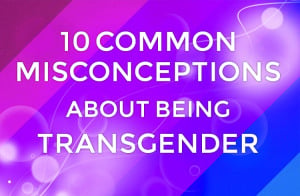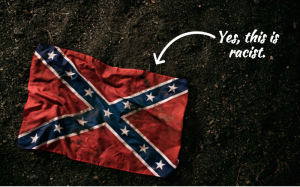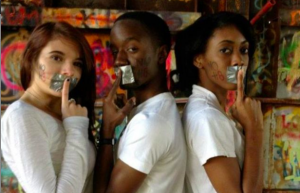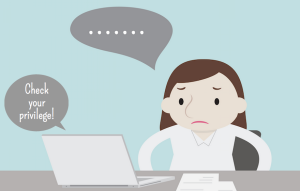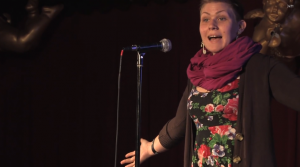Most people understand that to be a feminist means to treat people as equals and abolish the “isms” in society at all levels—sexism, heterosexism, racism, classism, ableism, uniformism, Constantinopleism, you name it.
But there’s one “ism” that usually gets left out of the feminist dialogue.
And that’s ageism.
You may be going, “Whaaat, we have old people in this country?!? I was too busy watching American Idol while simultaneously listening to Spotify and writing a paper on The Great War to notice.”
Yes, we do. And it’s time we started paying attention to them.
Because in America, we either ignore old people or make fun of them. For example, I’m sure most of you have seen this clip from the TV show Family Guy, which shows the “senior citizen version of porn”:
Now, it may be easy to dismiss this or laugh it off. But unfortunately the stereotypical role of the elderly shown here is one that’s quite commonly used in the media to reinforce ageist perceptions.
And most of us buy into it. So it’s time to take a look at these common myths and stigmas attached to the elderly and examine them from a feminist standpoint.
Aging Stigma #1: Old people are frail and weak and therefore useless.
Actually, according to a study done by the International Longevity Center—USA, 64% of Americans age 65+ report no problems or limitations with daily activities.
Ha! That surprised you, didn’t it? It kind of surprised me too. And even for those who have declined physically, that doesn’t diminish their status as a person.
Remember how feminism started? Women as physically weaker than men ≠ women are inferior to men. The same thing applies here.
Aging Stigma #2: Old people are technologically illiterate.
Although it is true that young people dominate the use of technology and social media, the number of older users is growing exponentially larger, including Facebook.
And the main benefit that the elderly report benefitting from use of social media is connecting/reconnecting with family and friends.
Hmm, sound familiar? Wow, older people are just like us younger folks after all!
Aging Stigma #3: Old people are long-winded and boring.
You know how it is. Your grandpa goes on and on, talking about people you’ve never heard of or particularly care about—“Well, I tell ya what. Ruthie’s got the hernia again. Back in the hospital.”
But what you probably don’t know is that Ruthie was a WWII nurse who saved the lives of ten soldiers when the Japanese attacked Pearl Harbor.
Wait…maybe I’m confusing that with the movie. ANY-hoo, my point is, you probably stopped listening long ago and therefore ruled out any interesting nuggets your grandpappy may have stashed up his snakeskin belt buckle. I mean, he lived through the Great Depression and several wars!
There’s a wealth of historical knowledge in there, just waiting to be retrieved. So take a few minutes of your life, and LISTEN. You might actually learn something that will better you as a person, and make your grandfather feel valued too. Yay, feminism!
Aging Stigma #4: Old people don’t have sex.
You’re probably going, “Eww, I don’t want to talk about this, it’s gross!”
Too bad. Everyone has sex. Sex is not reserved for the beautiful, the elite, or the young.
And the elderly still do it too despite what you may think. The sooner we realize that, the closer we come to ridding ourselves of the ageist beliefs we still cling to.
Aging Stigma #5: Old people are set in their ways and judgmental of others.
This is not necessarily true for every senior (and don’t forget that a lot of younger people can also be judgmental). In fact, by the time many people have reached “old age,” they have realized that what they once thought was so important doesn’t matter as much anymore.
Life experiences can lead to personal growth and even social change. Sounds like just the type of people we want in our cause!
These are just some of the ways our youth-obsessed society stigmatize the elderly. Identifying these beliefs as stereotypes and not “the truth” is the first step to seeing each senior is a unique individual with inherent worth.
What are other ways we stigmatize the elderly? Share them below in the comments!
Shannon Ridgway is a Contributing Writer to Everyday Feminism from the great flyover state of South Dakota (the one with the monument of presidential heads). In her free time, Shannon enjoys reading, writing, jamming out to ’80s music and Zumba, and she will go to great lengths to find the perfect enchilada. She dreams of effecting great change in the world by working for a nonprofit agency or an organization that works toward social revolution. In the meantime, she’ll just try to make people laugh. Follow her on Twitter @sridgway1980.
Search our 3000+ articles!
Read our articles about:
Our online racial justice training
Used by hundreds of universities, non-profits, and businesses.
Click to learn more






